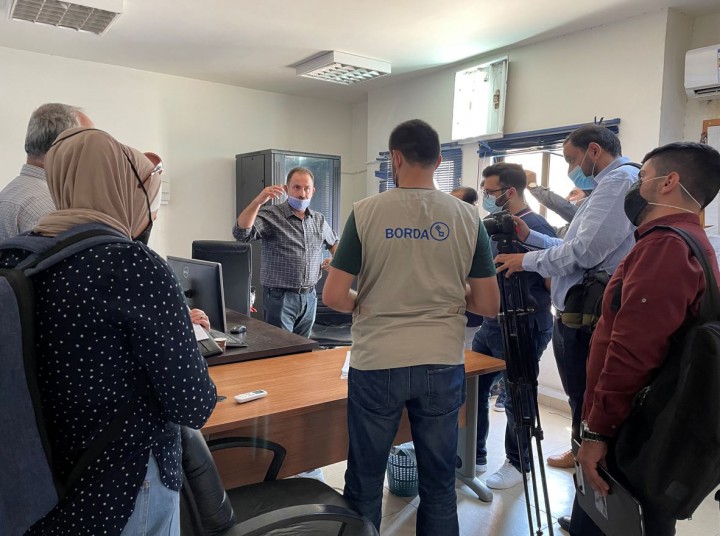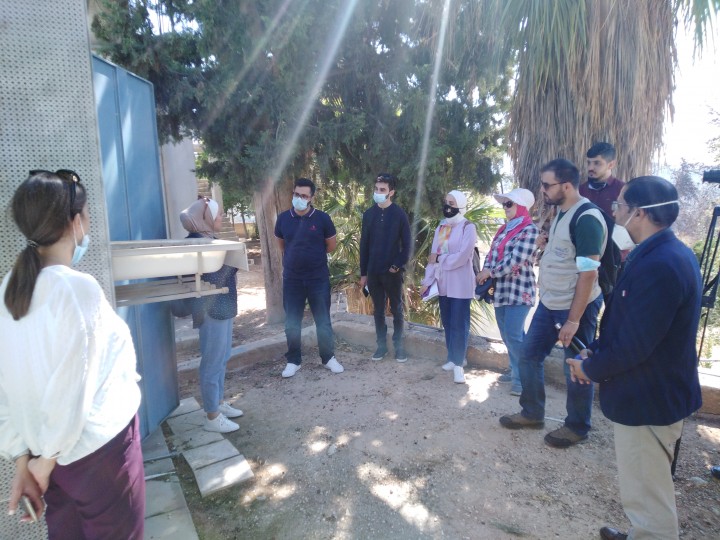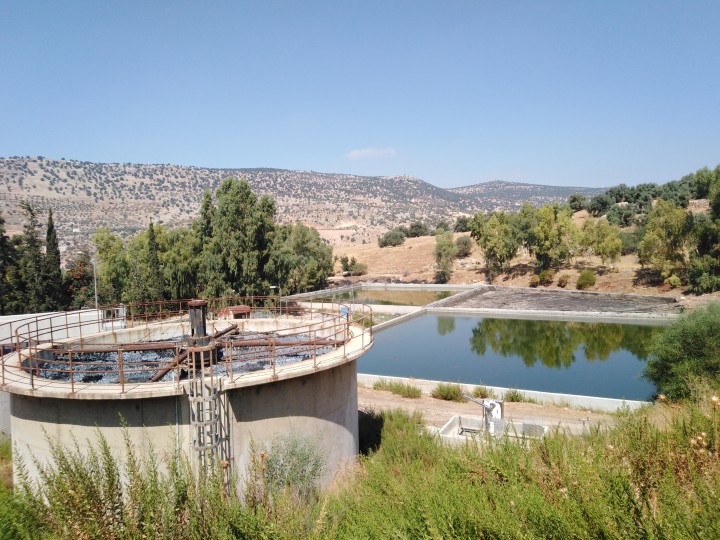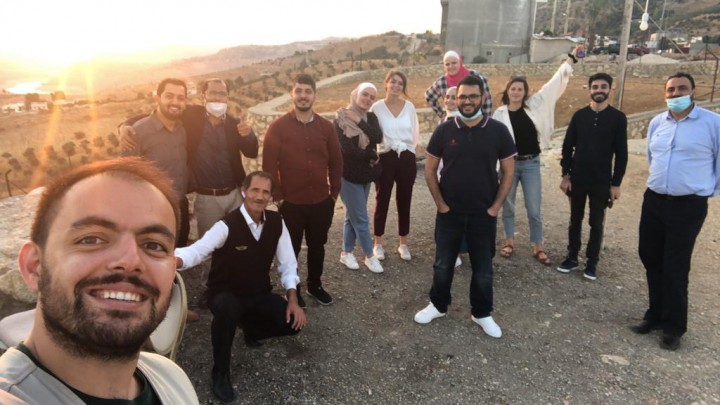To improve the quality of constructive water coverage, the Blue Peace Media Lab implemented by cewas and MiCT, and its local partners invited a select group of Jordan-based media professionals to participate in a full-day Exposure visit introducing them to three handpicked project related to water harvesting and treated wastewater technologies that tackle the issue of water scarcity in Jordan.
Images
Introduction
For the past years, the Blue Peace Media Lab has capacitated media professionals to promote sustainability in water management and cooperation in the Middle East. The assumption is that successful joint management of scarce water resources will promote discourse and lasting peace in the region. Only an informed public can constructively influence policy dialogue on water-related issues, which is why capabilities among media professionals and journalists shall be strengthened with the objective of fostering grounded knowledge and information-sharing in the region.
Amidst the unprecedented water scarcity conditions in Jordan over the past few years with significantly lower rainfall rates that usual, and the continuous pressure on government utilities to manage water supply services to over 10 million citizens and residents, it is crucial to highlight some of the successful practices in water management to present a different rhetoric from the mainstream reporting (mostly highlighting the challenges). Some practices in water management such as rainwater harvesting and Treated Wastewater (TWW) reuse technologies have proven to have a huge impact on making available additional amounts of water to water-stressed communities.
For instance, as estimated by the Royal Scientific Society (RSS), rooftop rainwater harvesting from residential building only can provide an additional 28M cubic meter per year of potable water. On the other hand, TWW reuse practices in restricted agricultural applications has been very successful in helping farmers find an alternative yet affordable source of irrigation water for fodder crops production with more opportunities still available in this sector.
To improve the quality of constructive water coverage, the Blue Peace Media Lab implemented by cewas and MiCT, and its local partners invited a select group of Jordan-based media professionals to participate in a full-day Exposure visit introducing them to three handpicked project related to water harvesting and treated wastewater technologies that tackle the issue of water scarcity in Jordan.
Further Description/ Program
During the exposure visit, media professionals learned about hands-on solutions to water challenges, explore project sites, and get the opportunity to exchange with and ask questions to the experts. This way, the media professionals can increase their understanding of current water issues and appropriate solutions and are invited to produce solution-oriented pieces on water related topics. As a follow-up to the exposure visit, the participating media professionals will be encouraged to produce solution-oriented water stories.
The following three sites and topics will be tackled during the exposure visit:
1: Community-scale rainwater harvesting systems in Ajloun
Rainwater Harvesting system in Ajloun College installed by the Royal Scientific Society and funded by UNDP in 2018.
2: Treated Wastewater Reuse Practices in Ajloun
TWW reuse practices in Kufranja, Ajloun. The site is adjacent to the Kufranja wastewater treatment Facility.
3. Open Discussion with water experts (water scarcity, water practices, and innovation)
Journalists and media professionals got the chance to engage with water experts from three fields: water studies, infrastructure, and entrepreneurship to further explore the potential in the sector and the opportunities that are yet to be explored in this sector as well as its direct linkages to the energy and food nexus. The discussion should provide a better understanding of the sector as a whole and can ignite curiosity in other water-related issues.



















